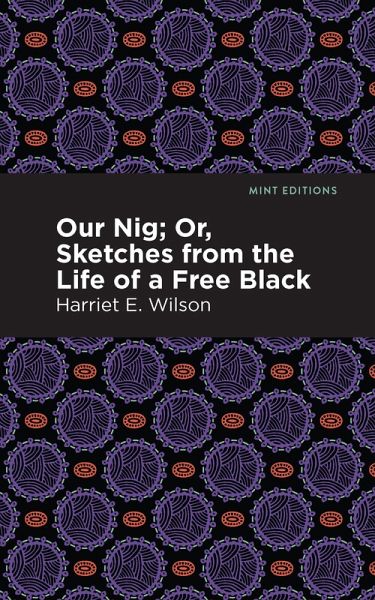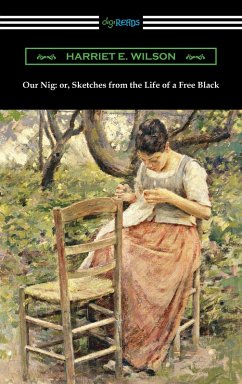
Our Nig; Or, Sketches from the Life of a Free Black (eBook, ePUB)
Versandkostenfrei!
Sofort per Download lieferbar
3,99 €
inkl. MwSt.
Weitere Ausgaben:

PAYBACK Punkte
2 °P sammeln!
Our Nig; or Sketches from the Life of a Free Black (1859) is an autobiographical novel by Harriet E. Wilson. Published anonymously, Our Nig; or Sketches from the Life of a Free Black is considered the first novel by an African American to be published in North America, having been rediscovered by Professor Henry Louis Gates, Jr. in 1981. Based on Wilson's own experience as a free black forced into indentured servitude in New Hampshire, the novel critiques the racism and indifference of white Northerners and abolitionists who claim to oppose slavery while upholding prejudice and injustice again...
Our Nig; or Sketches from the Life of a Free Black (1859) is an autobiographical novel by Harriet E. Wilson. Published anonymously, Our Nig; or Sketches from the Life of a Free Black is considered the first novel by an African American to be published in North America, having been rediscovered by Professor Henry Louis Gates, Jr. in 1981. Based on Wilson's own experience as a free black forced into indentured servitude in New Hampshire, the novel critiques the racism and indifference of white Northerners and abolitionists who claim to oppose slavery while upholding prejudice and injustice against African Americans.
Abandoned by her white mother following the death of her father, a free black man, Frado is raised as an indentured servant on the Bellmont farm. The Bellmonts, a middle-class family, initially believe Frado has been dropped off by her mother for the day, but when Mag fails to appear for several days, they realize the girl has been left in their care. Unwilling to raise her as one of their own, the Bellmonts immediately put her to work in their kitchen. Although she is treated kindly by their son Jack, Frado is frequently beaten by Mrs. Bellmont, who resents having the young mixed-race girl in her house and sees her work as an intrusion on her own housekeeping duties. Suffering under Mrs. Bellmont's abuses, Frado longs to escape.
This edition of Harriet E. Wilson's Our Nig; or Sketches from the Life of a Free Black is a classic of African American literature reimagined for modern readers.
Since our inception in 2020, Mint Editions has kept sustainability and innovation at the forefront of our mission. Each and every Mint Edition title gets a fresh, professionally typeset manuscript and a dazzling new cover, all while maintaining the integrity of the original book.
With thousands of titles in our collection, we aim to spotlight diverse public domain works to help them find modern audiences. Mint Editions celebrates a breadth of literary works, curated from both canonical and overlooked classics from writers around the globe.
Abandoned by her white mother following the death of her father, a free black man, Frado is raised as an indentured servant on the Bellmont farm. The Bellmonts, a middle-class family, initially believe Frado has been dropped off by her mother for the day, but when Mag fails to appear for several days, they realize the girl has been left in their care. Unwilling to raise her as one of their own, the Bellmonts immediately put her to work in their kitchen. Although she is treated kindly by their son Jack, Frado is frequently beaten by Mrs. Bellmont, who resents having the young mixed-race girl in her house and sees her work as an intrusion on her own housekeeping duties. Suffering under Mrs. Bellmont's abuses, Frado longs to escape.
This edition of Harriet E. Wilson's Our Nig; or Sketches from the Life of a Free Black is a classic of African American literature reimagined for modern readers.
Since our inception in 2020, Mint Editions has kept sustainability and innovation at the forefront of our mission. Each and every Mint Edition title gets a fresh, professionally typeset manuscript and a dazzling new cover, all while maintaining the integrity of the original book.
With thousands of titles in our collection, we aim to spotlight diverse public domain works to help them find modern audiences. Mint Editions celebrates a breadth of literary works, curated from both canonical and overlooked classics from writers around the globe.
Dieser Download kann aus rechtlichen Gründen nur mit Rechnungsadresse in A, D ausgeliefert werden.













